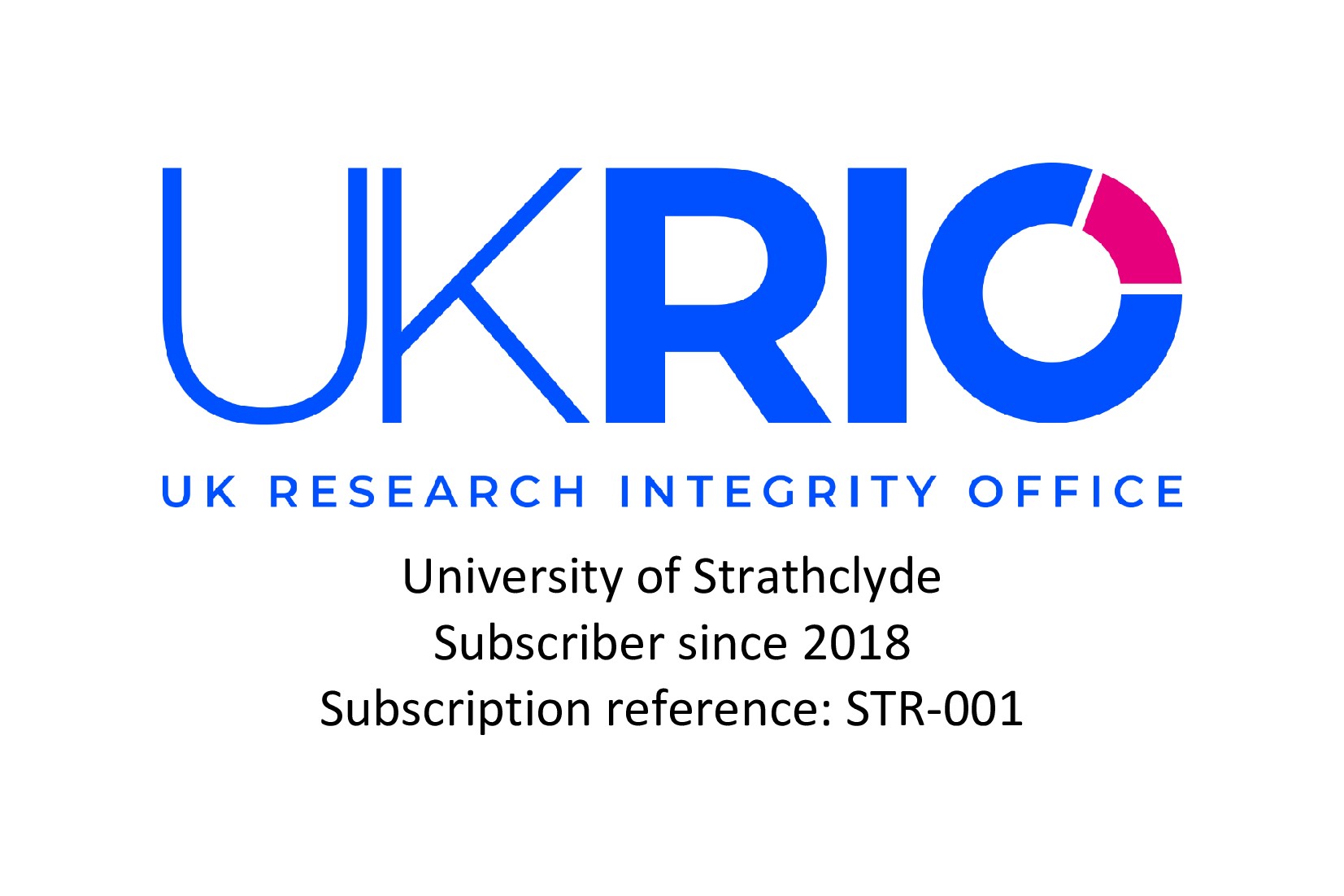Training and resources
University of Strathclyde provides online and face-to-face training that explains research integrity and misconduct in greater detail.
Training for postgraduate research students
Training for staff
UK Research Integrity Office resources
The UK Research Integrity Office (UKRIO) is an independent advisory body, offering support to the public, researchers, and organisations to further good practice in research. A registered charity, it was created in response to longstanding and growing concerns about the reliability of research.
UKRIO is the UK’s most experienced research integrity organisation. Since 2006, it has provided independent and expert support across all disciplines of research, from the arts and humanities to the life sciences. It works to enhance good research practice, address mistakes, questionable practices and fraud, and improve the culture and systems of UK research.
UKRIO can offer researchers:
Education – guidance and support through publications on research practice, training activities and a comprehensive events programme.
Sharing best practice – clear and honest development for the research community through facilitated discussions about key issues, informing national and international initiatives, and working to improve research culture.
Expert guidance – confidential and expert advice and guidance, as a proactive service for both institutions and individual researchers, as well as in response to requests for assistance.

